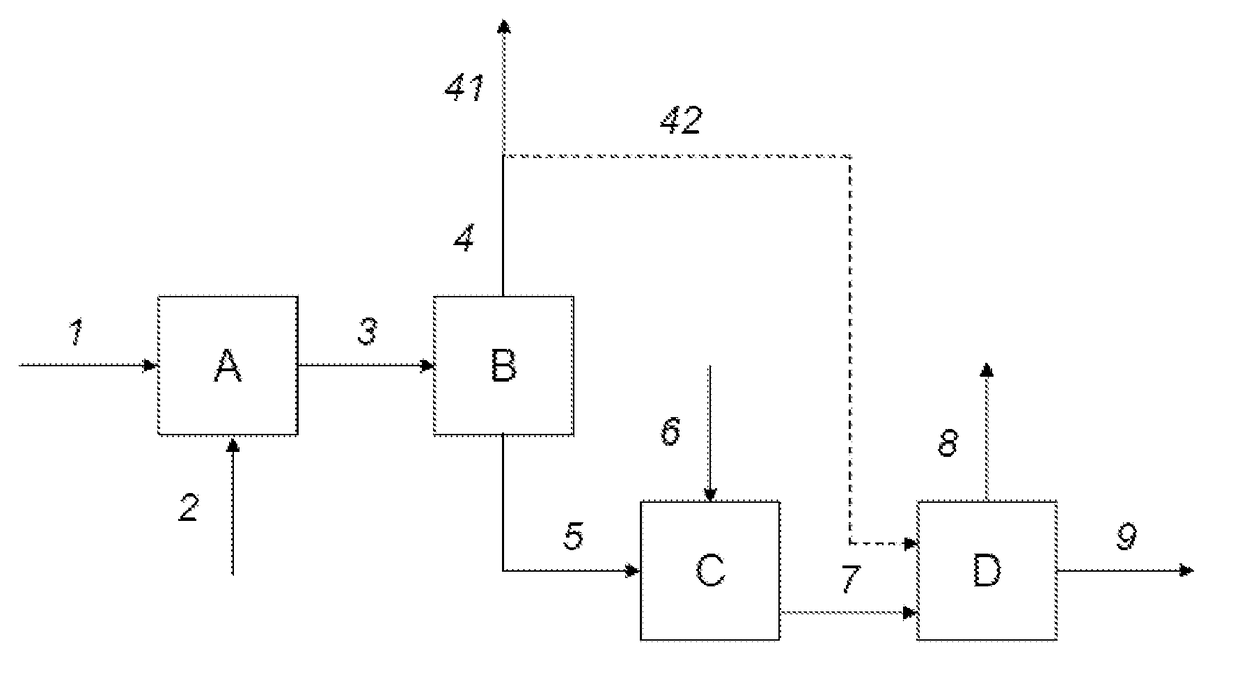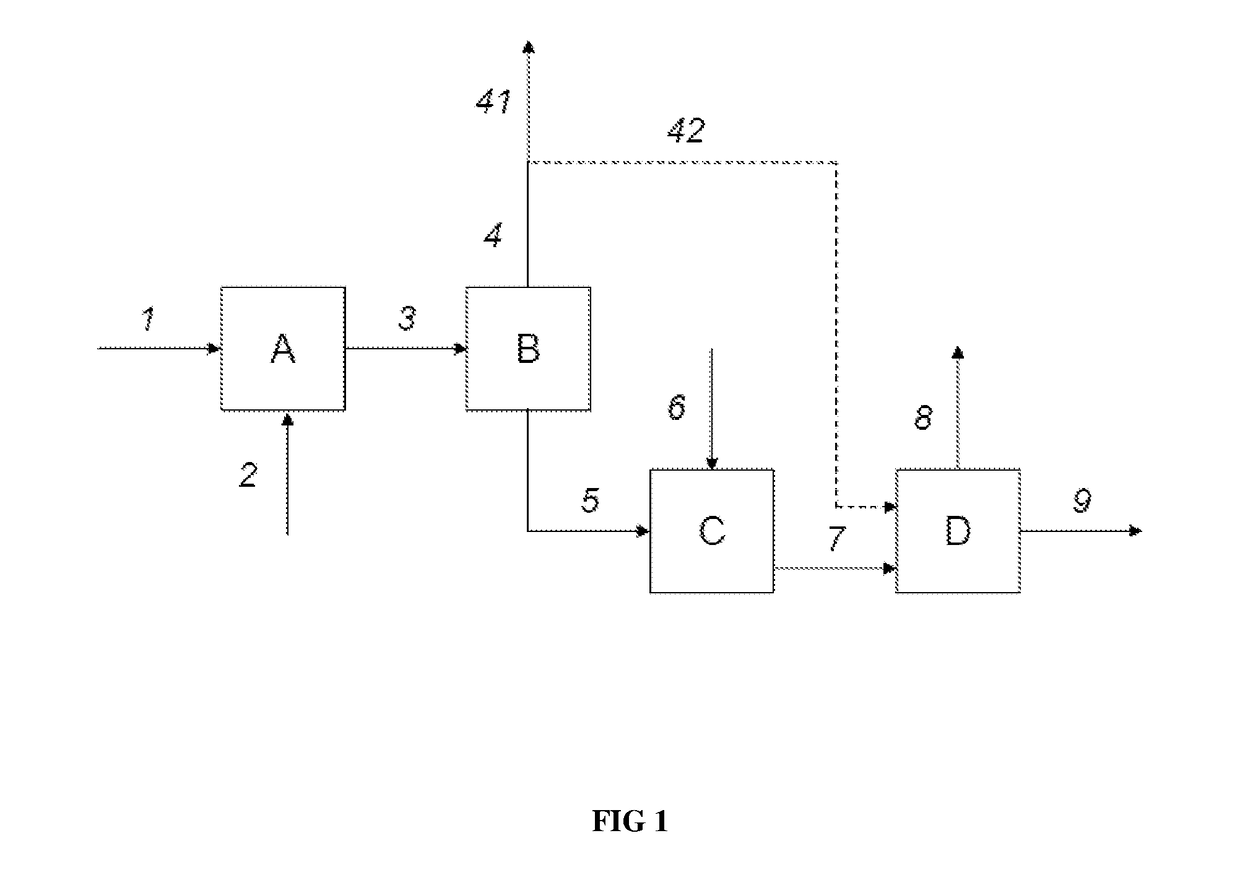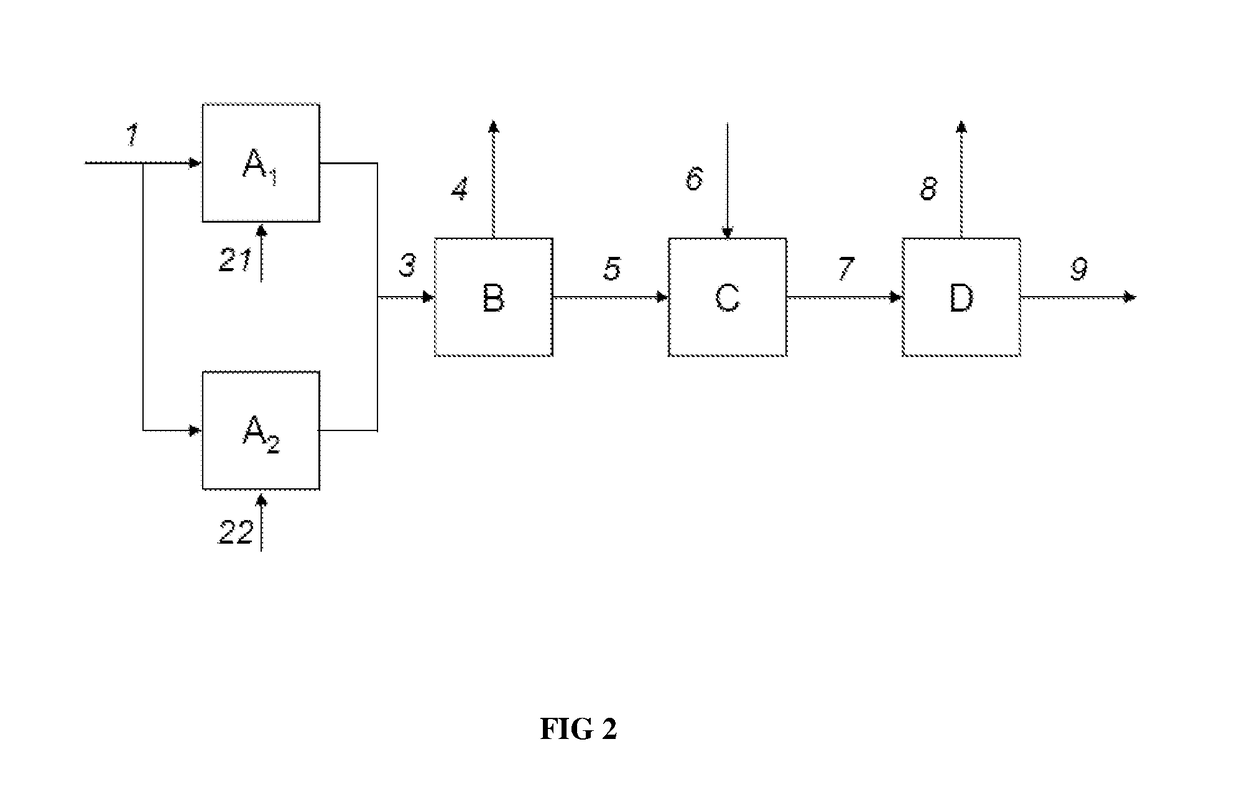Method for converting heavy hydrocarbon feedstocks
a technology of hydrocarbon feedstock and conversion method, which is applied in the direction of hydrocarbon oil cracking, metal/metal-oxide/metal-hydroxide catalyst, physical/chemical process catalyst, etc., can solve the problems of clogging process equipment, affecting the stability of the effluent, and relatively difficult upgrading of oil residues, so as to increase the thermal cracking of the heavy cut, improve the stability of the effluent, and increase the conversion
- Summary
- Abstract
- Description
- Claims
- Application Information
AI Technical Summary
Benefits of technology
Problems solved by technology
Method used
Image
Examples
example 2 (
in Accordance with the Invention)
[0074]Process layout in accordance with the invention with low hourly space velocity (overall HSV=0.089 h−1) and low temperature
[0075]In this example, the present invention is illustrated in a process layout with two ebullated bed reactors disposed in series, operated at a low hourly space velocity (HSV) and at a low temperature and with a separation section.
Hydroconversion Section a)
[0076]The fresh feed of Table 1 was sent in its entirety to a section A for hydroconversion in the presence of hydrogen, said section comprising a three-phase reactor containing a NiMo / alumina hydroconversion catalyst with a NiO content of 4% by weight and a MoO3 content of 9% by weight, the percentages being expressed with respect to the total mass of catalyst. The section functioned in ebullated bed mode with an upflow of liquid and gas.
[0077]The conditions applied in the hydroconversion section A are shown in Table 6.
TABLE 6Operating conditionsSectionAP, totalMPa16Tem...
PUM
| Property | Measurement | Unit |
|---|---|---|
| temperature | aaaaa | aaaaa |
| pressure | aaaaa | aaaaa |
| temperature | aaaaa | aaaaa |
Abstract
Description
Claims
Application Information
 Login to View More
Login to View More - R&D
- Intellectual Property
- Life Sciences
- Materials
- Tech Scout
- Unparalleled Data Quality
- Higher Quality Content
- 60% Fewer Hallucinations
Browse by: Latest US Patents, China's latest patents, Technical Efficacy Thesaurus, Application Domain, Technology Topic, Popular Technical Reports.
© 2025 PatSnap. All rights reserved.Legal|Privacy policy|Modern Slavery Act Transparency Statement|Sitemap|About US| Contact US: help@patsnap.com



